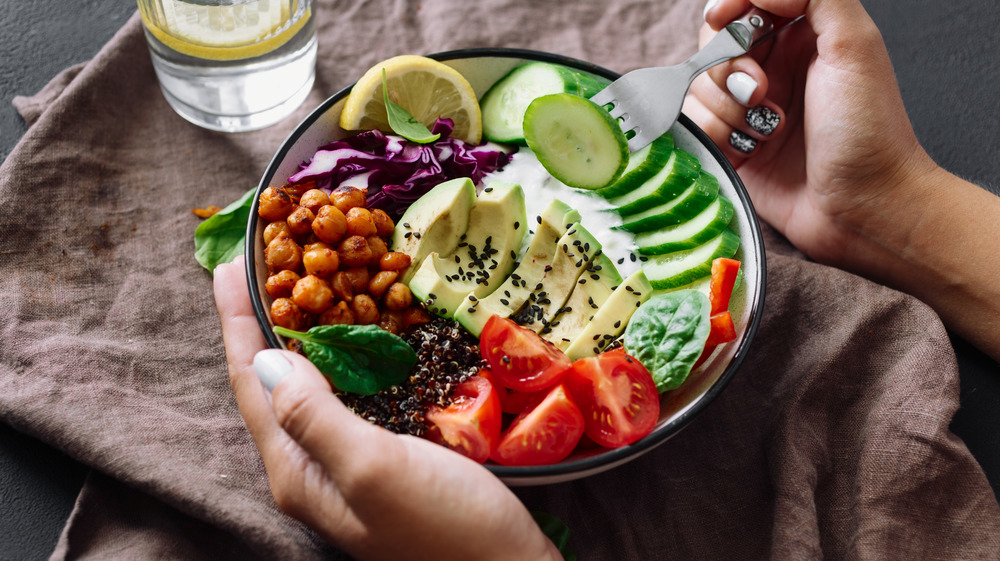The Difference Between The Satiating And The Mediterranean Diets
You've likely heard of the Mediterranean diet, the style of eating that's been linked to better health outcomes, weight loss, and a whole-food approach to eating. A satiating diet — a term coined by researchers at the Université Laval in Canada — is similar in many ways, with a few critical small differences.
The satiating diet utilizes foods that not only are nutrient-dense, but that are filling as well. Satisfaction and a feeling of being full are key components to the diet, and using fruits, vegetables, and whole grains as the base provides fiber to keep you full, in addition to protein and healthy fats. One of the lead researchers in the study, Dr. Shirin Panahi, notes that fish, avocados, and dairy are all great examples of protein and fat-filled foods that can not only help you feel full, they can also improve gut health and lower blood sugar (via Scientific American).
When researchers tested the satiating diet in 2017, they asked the group on the diet to eat four servings of both vegetables and fruit, five servings of whole grains, four servings of protein, and a snack throughout the day. The results showed that the obese men in the study were more likely to reduce body fat while still feeling full, compared to those who ate a so-called healthy diet that followed government recommendations. They also found that the satiating diet was easier to stick to than a more specific diet plan.
How are the two diets different?
Like a Mediterranean diet, the satiating diet doesn't focus on a certain number of calories or type of macronutrient (via Health). Rather, it's about learning to feel full and understand your body's cues while eating highly nutritious foods (via Good Housekeeping).
Clearly, the satiating diet is similar to the Mediterranean diet, thanks to the foods that it focuses on: vegetables, fruit, whole grains, lean protein, and healthy fats. But the main difference is dairy. The satiating diet allows for dairy like yogurt, thanks to the probiotic benefits it provides to your gut. The Mediterranean diet doesn't exclude dairy, but a typical Mediterranean diet would generally avoid most dairy with the exception of small amounts of cheese or yogurt (via Healthline).
The Mediterranean diet also misses one spicy component that's key in the satiating diet: The hot compound found in hot peppers, capsaicin, which can boost metabolism and aid weight loss (via Health). While you can certainly incorporate those into a Mediterranean diet, the satiating diet puts a greater emphasis on their usage, due to their many health benefits.


